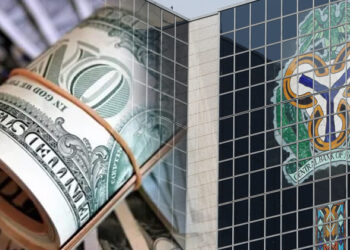Nigerians living in Eurozone faces massive erosion of purchasing power, primarily due to the uptick of energy prices caused by the ongoing 6-day Russia-Ukraine war.
What started as a training exercise have escalated to a modern war that have shacked one of the most developed continent in the world. The Russia-Ukraine war effects is not isolated to Europe, but has trickled down to the poverty capital of the world, Nigeria.
Nigerian that have fled their motherland for better prospects will now face worsen economic conditions such war and inflation, which would make most consider going back home. However, Nigerians account for the highest number of immigrants to Eurozone amidst other African countries recording about 390,000 immigrants.
According to the European Union’s official statistics agency, Eurostat, it reported that the Eurozone inflation soared in February 2022 to as high as 5.8 % from 5.1 % in January, accounting for about 0.7 % increment in the inflation rate.
This surge was reported as oil and gas prices rocketed even higher over fears about the effect on supplies from Russia’s full-scale invasion of Ukraine. The Brent price has topped $110 a barrel for the first time since 2014 and the West Texas Intermediate (WTI) followed suit later to hit the highest since 2013.
Hence, as the European leaders impose tough sanctions on Russia, which happens to be a major exporter of energy products, and the second foreign gas supplier, they warns both their citizens and immigrants on the price to pay in terms of high inflationary pressures.
Eurostat said energy prices jumped to 31.7% in February compared to 28.8% recorded in January, food prices also went up to 4.1% in February, compared with 3.5% in previous month.
However, analysts at Capital Economics predict a further increase of the inflation rate to hit 6% in March if the Russian- Ukraine war persists. Stating explicitly that the price hike is not limited to energy prices but also food, since Ukraine is a major wheat exporter.
Conclusion
It is important to note that amid the war most Nigerian and African would still prefer the comfort of Europe given that the standard of living in Europe is far better than what we see in Nigeria.











